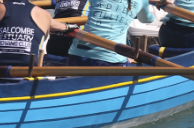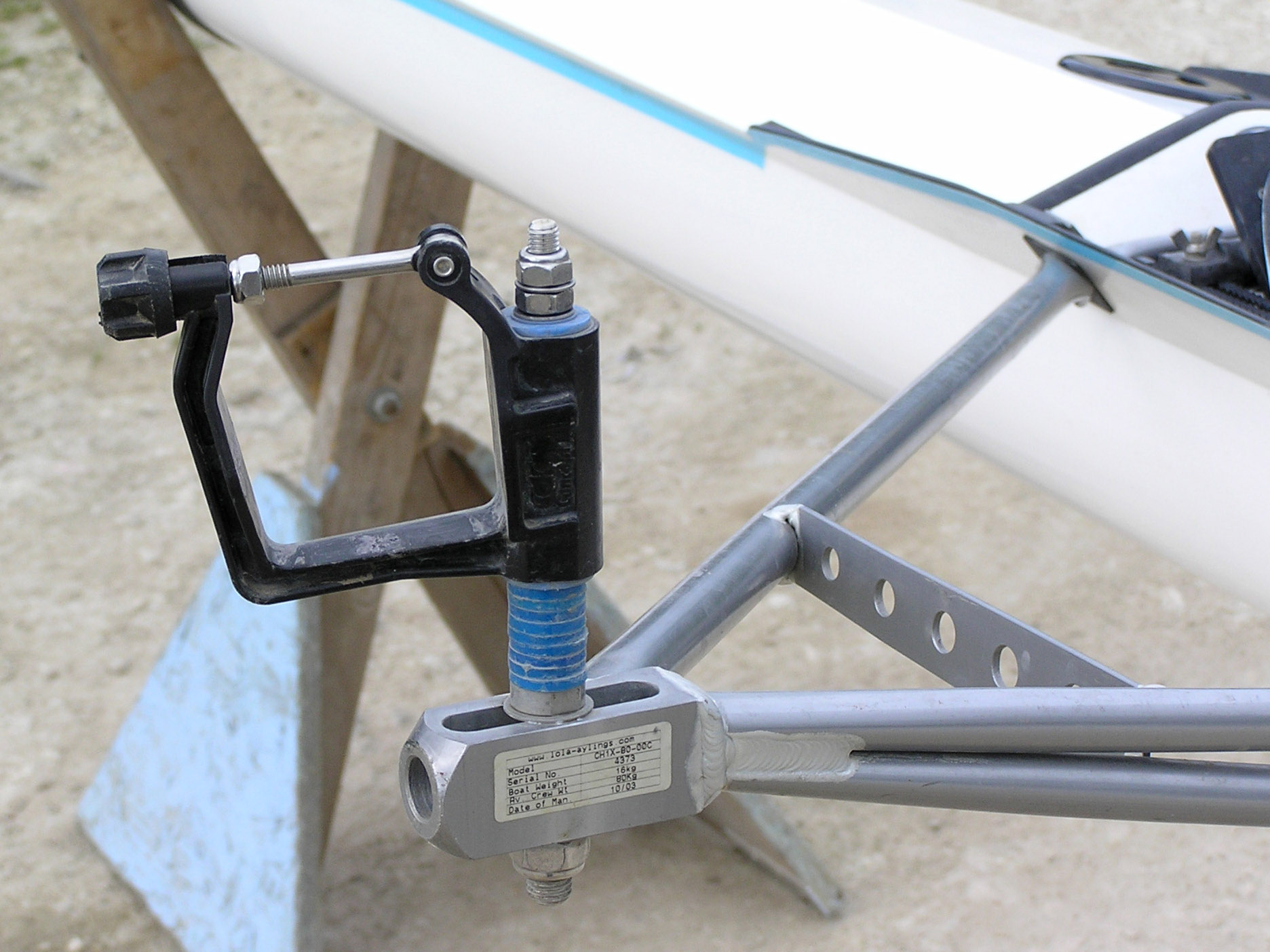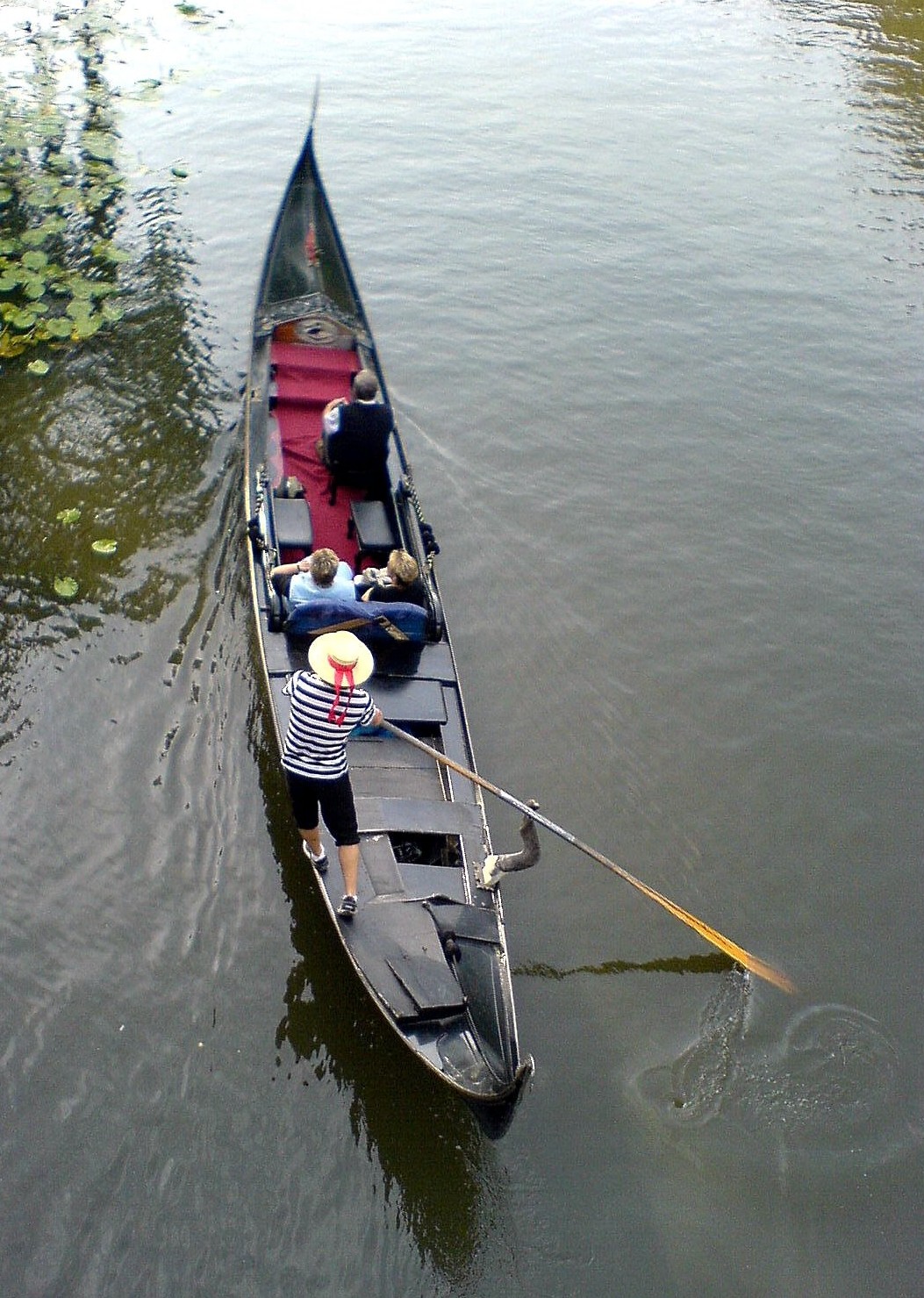|
Jiří Pták
Jiří Pták (born 24 March 1946 in Děčín, Czechoslovakia), is a Czech rowing coxswain who competed for Czechoslovakia at six Olympic Games between 1968 and 1992 (except the 1984 Olympics, boycotted by the Eastern Bloc countries). He was the first rower to compete at six Olympics. He was the third rower, after Briton Jack Beresford and Soviet Yuriy Lorentsson, to compete at five Olympics. (From 1896 to 2020, 26 rowers have competed at five Olympics and 8 at six Olympics.) His best performance was fourth in the eight at the 1980 Moscow Olympics, when his team lost out on bronze by 1.09 seconds. See also * List of athletes with the most appearances at Olympic Games Only a small fraction of the world's population ever competes at the Olympic Games; an even smaller fraction competes in multiple Games. 950 athletes (648 men and 302 women) have participated in at least five Olympics from 1896 Summer Olympics ... References 1946 births Living people Czech male rowe ... [...More Info...] [...Related Items...] OR: [Wikipedia] [Google] [Baidu] |
Děčín
Děčín (; ) is a city in the Ústí nad Labem Region of the Czech Republic. It has about 46,000 inhabitants. It is the seventth largest municipality in the country by area. Děčín is an important traffic junction. Administrative division Děčín consists of 35 municipal parts (in brackets population according to the 2021 census): *Děčín I-Děčín (4,723) *Děčín II-Nové Město (5,948) *Děčín III-Staré Město (3,687) *Děčín IV-Podmokly (5,376) *Děčín V-Rozbělesy (342) *Děčín VI-Letná (7,502) *Děčín VII-Chrochvice (1,252) *Děčín VIII-Dolní Oldřichov (704) *Děčín IX-Bynov (3,670) *Děčín X-Bělá (907) *Děčín XI-Horní Žleb (292) *Děčín XII-Vilsnice (277) *Děčín XIII-Loubí (185) *Děčín XIV-Dolní Žleb (141) *Děčín XV-Prostřední Žleb (232) *Děčín XVI-Přípeř (97) *Děčín XVII-Jalůvčí (559) *Děčín XVIII-Maxičky (100) *Děčín XIX-Čechy (195) *Děčín XX-Nová Ves (218) *Děčín XXI-Horní Oldřichov (445) *D� ... [...More Info...] [...Related Items...] OR: [Wikipedia] [Google] [Baidu] |
1946 Births
1946 (Roman numerals, MCMXLVI) was a common year starting on Tuesday of the Gregorian calendar, the 1946th year of the Common Era (CE) and ''Anno Domini'' (AD) designations, the 946th year of the 2nd millennium, the 46th year of the 20th century, and the 7th year of the 1940s decade. Events January * January 6 – The 1946 North Vietnamese parliamentary election, first general election ever in Vietnam is held. * January 7 – The Allies of World War II recognize the Austrian republic with its 1937 borders, and divide the country into four Allied-occupied Austria, occupation zones. * January 10 ** The first meeting of the United Nations is held, at Methodist Central Hall Westminster in London. ** ''Project Diana'' bounces radar waves off the Moon, measuring the exact distance between the Earth and the Moon, and proves that communication is possible between Earth and outer space, effectively opening the Space Age. * January 11 – Enver Hoxha declares the People's Republic ... [...More Info...] [...Related Items...] OR: [Wikipedia] [Google] [Baidu] |
Coxswains (rowing)
The coxswain ( or ) is the person in charge of a boat, particularly its navigation and steering. The etymology of the word gives a literal meaning of "boat servant" since it comes from ''cock'', referring to the cockboat, a type of ship's boat, and ''swain'', an Old English term derived from the Old Norse ''sveinn'' meaning boy or servant. In 1724, a "cockswain" was defined as "An officer of a ship who takes care of the cockboat, barge or shallop, with all its furniture, and is in readiness with his crew to man the boat on all occasions." When the term "cockboat" became obsolete, the title of coxswain as the person in charge of a ship's boat remained. Rowing In rowing, the coxswain sits in either the bow or the stern of the boat (depending on the type of boat) while verbally and physically controlling the boat's steering, speed, timing and fluidity. The primary duty of a coxswain is to ensure the safety of those in the boat. In a race setting, the coxswain is tasked with mo ... [...More Info...] [...Related Items...] OR: [Wikipedia] [Google] [Baidu] |
Rowers From The Ústí Nad Labem Region
Rowing is the act of propelling a human-powered watercraft using the sweeping motions of oars to displace water and generate reactional propulsion. Rowing is functionally similar to paddling, but rowing requires oars to be mechanically attached to the boat, and the rower drives the oar like a lever, exerting force in the ''same'' direction as the boat's travel; while paddles are completely hand-held and have no attachment to the boat, and are driven like a cantilever, exerting force ''opposite'' to the intended direction of the boat. In some strict terminologies, using oars for propulsion may be termed either "pulling" or "rowing", with different definitions for each. Where these strict terminologies are used, the definitions are reversed depending on the context. On saltwater a "pulling boat" has each person working one oar on one side, alternating port and starboard along the length of the boat; whilst "rowing" means each person operates two oars, one on each side of the ... [...More Info...] [...Related Items...] OR: [Wikipedia] [Google] [Baidu] |
Sportspeople From Děčín
An athlete is most commonly a person who competes in one or more sports involving physical strength, speed, power, or endurance. Sometimes, the word "athlete" is used to refer specifically to sport of athletics competitors, i.e. including track and field and marathon runners but excluding e.g. swimmers, footballers or basketball players. However, in other contexts (mainly in the United States) it is used to refer to all athletics (physical culture) participants of any sport. For the latter definition, the word sportsperson or the gendered sportsman or sportswoman are also used. A third definition is also sometimes used, meaning anyone who is physically fit regardless of whether they compete in a sport. Athletes may be professionals or amateurs. Most professional athletes have particularly well-developed physiques obtained by extensive physical training and strict exercise, accompanied by a strict dietary regimen. Definitions The word "athlete" is a romanization of the , ''at ... [...More Info...] [...Related Items...] OR: [Wikipedia] [Google] [Baidu] |
Rowers At The 1992 Summer Olympics
Rowing is the act of propelling a human-powered watercraft using the sweeping motions of oars to displace water and generate reactional propulsion. Rowing is functionally similar to paddling, but rowing requires oars to be mechanically attached to the boat, and the rower drives the oar like a lever, exerting force in the ''same'' direction as the boat's travel; while paddles are completely hand-held and have no attachment to the boat, and are driven like a cantilever, exerting force ''opposite'' to the intended direction of the boat. In some strict terminologies, using oars for propulsion may be termed either "pulling" or "rowing", with different definitions for each. Where these strict terminologies are used, the definitions are reversed depending on the context. On saltwater a "pulling boat" has each person working one oar on one side, alternating port and starboard along the length of the boat; whilst "rowing" means each person operates two oars, one on each side of the ... [...More Info...] [...Related Items...] OR: [Wikipedia] [Google] [Baidu] |
Rowers At The 1988 Summer Olympics
Rowing is the act of propelling a human-powered watercraft using the sweeping motions of oars to displace water and generate reaction (physics), reactional propulsion. Rowing is functionally similar to paddling, but rowing requires oars to be mechanically attached to the boat, and the rower drives the oar like a lever, exerting force in the ''same'' direction as the boat's travel; while paddles are completely hand-held and have no attachment to the boat, and are driven like a cantilever, exerting force ''opposite'' to the intended direction of the boat. In some strict terminologies, using oars for propulsion may be termed either "pulling" or "rowing", with different definitions for each. Where these strict terminologies are used, the definitions are reversed depending on the context. On seawater, saltwater a "pulling boat" has each person working one oar on one side, alternating port and starboard along the length of the boat; whilst "rowing" means each person operates two o ... [...More Info...] [...Related Items...] OR: [Wikipedia] [Google] [Baidu] |
Rowers At The 1980 Summer Olympics
Rowing is the act of propelling a human-powered watercraft using the sweeping motions of oars to displace water and generate reactional propulsion. Rowing is functionally similar to paddling, but rowing requires oars to be mechanically attached to the boat, and the rower drives the oar like a lever, exerting force in the ''same'' direction as the boat's travel; while paddles are completely hand-held and have no attachment to the boat, and are driven like a cantilever, exerting force ''opposite'' to the intended direction of the boat. In some strict terminologies, using oars for propulsion may be termed either "pulling" or "rowing", with different definitions for each. Where these strict terminologies are used, the definitions are reversed depending on the context. On saltwater a "pulling boat" has each person working one oar on one side, alternating port and starboard along the length of the boat; whilst "rowing" means each person operates two oars, one on each side of th ... [...More Info...] [...Related Items...] OR: [Wikipedia] [Google] [Baidu] |
Rowers At The 1972 Summer Olympics
Rowing is the act of propelling a human-powered watercraft using the sweeping motions of oars to displace water and generate reactional propulsion. Rowing is functionally similar to paddling, but rowing requires oars to be mechanically attached to the boat, and the rower drives the oar like a lever, exerting force in the ''same'' direction as the boat's travel; while paddles are completely hand-held and have no attachment to the boat, and are driven like a cantilever, exerting force ''opposite'' to the intended direction of the boat. In some strict terminologies, using oars for propulsion may be termed either "pulling" or "rowing", with different definitions for each. Where these strict terminologies are used, the definitions are reversed depending on the context. On saltwater a "pulling boat" has each person working one oar on one side, alternating port and starboard along the length of the boat; whilst "rowing" means each person operates two oars, one on each side of ... [...More Info...] [...Related Items...] OR: [Wikipedia] [Google] [Baidu] |
Olympic Rowers For Czechoslovakia
Olympic or Olympics may refer to Sports Competitions * Olympic Games, international multi-sport event held since 1896 ** Summer Olympic Games ** Winter Olympic Games * Ancient Olympic Games, ancient multi-sport event held in Olympia, Greece between 776 BC and 393 AD * Olympic (greyhounds), a competition held annually at Brighton & Hove Greyhound Stadium Clubs and teams * Adelaide Olympic FC, a soccer club from Adelaide, South Australia * Fribourg Olympic, a professional basketball club based in Fribourg, Switzerland * Sydney Olympic FC, an Australian soccer club * Olympic Club (Barbacena), a Brazilian football club based in Barbacena, Minas Gerais state * Olympic Mvolyé, a Cameroonian football club based in Mvolyé * Olympic Club (Egypt), a football and sports club based in Alexandria * Blackburn Olympic F.C., an English football club based in Blackburn, Lancashire * Rushall Olympic F.C., an English football club based in Rushall * FC Olympic Tallinn, an Estoni ... [...More Info...] [...Related Items...] OR: [Wikipedia] [Google] [Baidu] |






